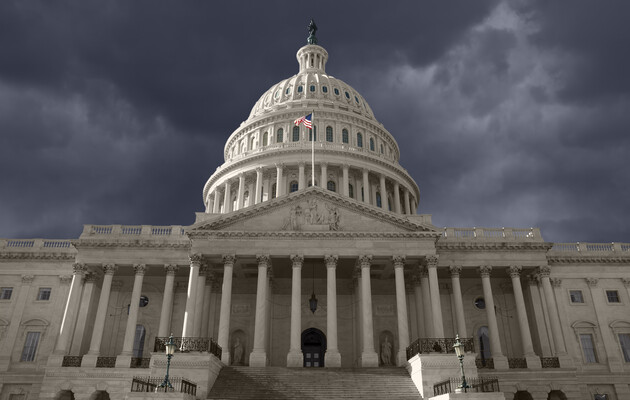Doubts from representatives of both parties may threaten the consensus on the aid that Washington provides to Kyiv.

Republicans in Congress sharply questioned Pentagon officials on Tuesday about tens of billions of dollars spent on US military and other aid to Ukraine. And that raises doubts about whether they will support the new spending at a time when Democrats are asking for a clear estimate of how much more money will be needed. after the anniversary of the Russian invasion of Ukraine, revealed how much concerns about the high price of sending weapons to Kyiv on Capitol Hill have intensified. Growing doubts threaten the bipartisan consensus on aid. It may become more difficult for the Biden administration to get congressional approval of new funding to replenish military support accounts. The turning point in financing may happen already this summer, several months earlier than previously expected,” writes the New York Times.
The hearings also showed how members of both parties, despite expressing confidence that a majority in Congress remains committed to supporting Ukraine, are actually worried about a determined minority. This minority includes right-wing Republicans who oppose any US intervention in foreign conflicts, as well as liberal anti-war Democrats. Congressmen fear such a minority could weaken resolve if the war drags on.
Tensions were particularly visible on Tuesday, when Andrew Clyde, Republican of Georgia and a prominent critic of Ukraine funding, began questioning US Defense Department officials about suspicions , that the transferred weapons were lost or diverted to the wrong destination.
Read also: The US has no evidence of leakage of American weapons outside of Ukraine – Pentagon
“Accounting of transferred weapons is of absolute priority, especially for the most sensitive weapons. We need to make sure that it is used for its intended purpose and not diverted to pursue nefarious purposes,” Clyde told Pentagon Inspector General Robert Storch.
The New York Times explains that Clyde's questions sounded strange because he does not serve on the House Armed Services Committee. He was invited to participate in the hearing by the chairman of the committee – Mike Rogers, a Republican from the state of Alabama, who supports the provision of military aid to Ukraine. Rogers gave Clyde most of the time for questions, noting that the record amounts of military support required “unprecedented oversight by Congress.”
The decision to send the tanks, the grueling nature of the war on the ground, and continued demands from some camps in Congress to approve the transfer of more advanced systems to Ukraine threaten to deplete the funds sooner than expected back in December, when Congress appropriated $45 billion in military and other aid, hoping that this will be enough until September. The high cost of war has prompted Congress to come up with a series of oversight requirements for information about how the money is spent. Some of this data has been provided to lawmakers, but only some of it has reached the public.
“The acceleration of spending and the lack of detailed information have emboldened several skeptics, who have stepped up a campaign this week to expose the Ukraine aid program as a failed dud that happened with the tacit approval of party leaders,” the New York Times writes.
“You can't testify that we have followed the end-use monitoring requirements since the beginning of the conflict, can you?” – Florida Republican Matt Goetz insisted, accusing Storch of evading the answer. Democrats also spoke of their concerns on Tuesday, demanding that Pentagon leaders be honest about how much more money congressmen will have to allocate for Ukraine.
Also read: Ukraine may receive Abrams tanks in a year or more – Pentagon
“How many more times do you think Congress will have to provide aid? What do you think the ultimate goal is?” – Democrat from California Ro Hanna asked US Deputy Secretary of Defense Colin Kahl.
The question was echoed by some Democrats during a hearing before the House Appropriations Committee, which also oversees military spending. But there it was addressed to Assistant Secretary of Defense for International Security Celeste Wallander.
“How much bigger will the check be? We have to at least allow for the possibility that we'll see a bigger bill next year,” said Hawaii Democrat Ed Kayes.
Pentagon officials declined to give numbers or exact dates when they might ask for more funding again, saying that the vagaries of war make it impossible to keep to the schedule.
“I don't know if the bill will be bigger or smaller. I only know that we are preparing effective deterrent forces that Ukraine will need,” Wallander said.
Kahl suggested that demands by some congressmen to increase military aid to Ukraine could further complicate the Biden administration's efforts to secure the war effort. Last week, a bipartisan group in the House of Representatives calling on President Biden to transfer F-16 fighter jets to Ukraine tripled in size. On Tuesday, Pennsylvania Democrat and former US Air Force officer Chrissy Gulagan demanded an explanation from Kahl as to why the Ukrainian pilot training program had not been launched. Kal replied that starting training would save no time. Because it will take 18 months to train Ukrainian pilots to use the F-16. And the Pentagon believes that this is the shortest period for which fighter jets could be sent.
Read also: Transferring fighter jets to Ukraine would be a foolish decision – the US congressman
“It is pointless to start training them to use a system that they may never get,” Kahl said, adding that F-16 fighters are not among Ukraine's top three priorities.
He also noted that the supply of F-16s would also be very expensive 36 planes will cost 2-3 billion dollars. Although the Pentagon believes that Ukraine needs 50-80 fighter jets to upgrade its air force.
Related video
“This will absorb a large part of the security assistance that we have this fiscal year. These are compromises that we make in real time,” Cal explained.



